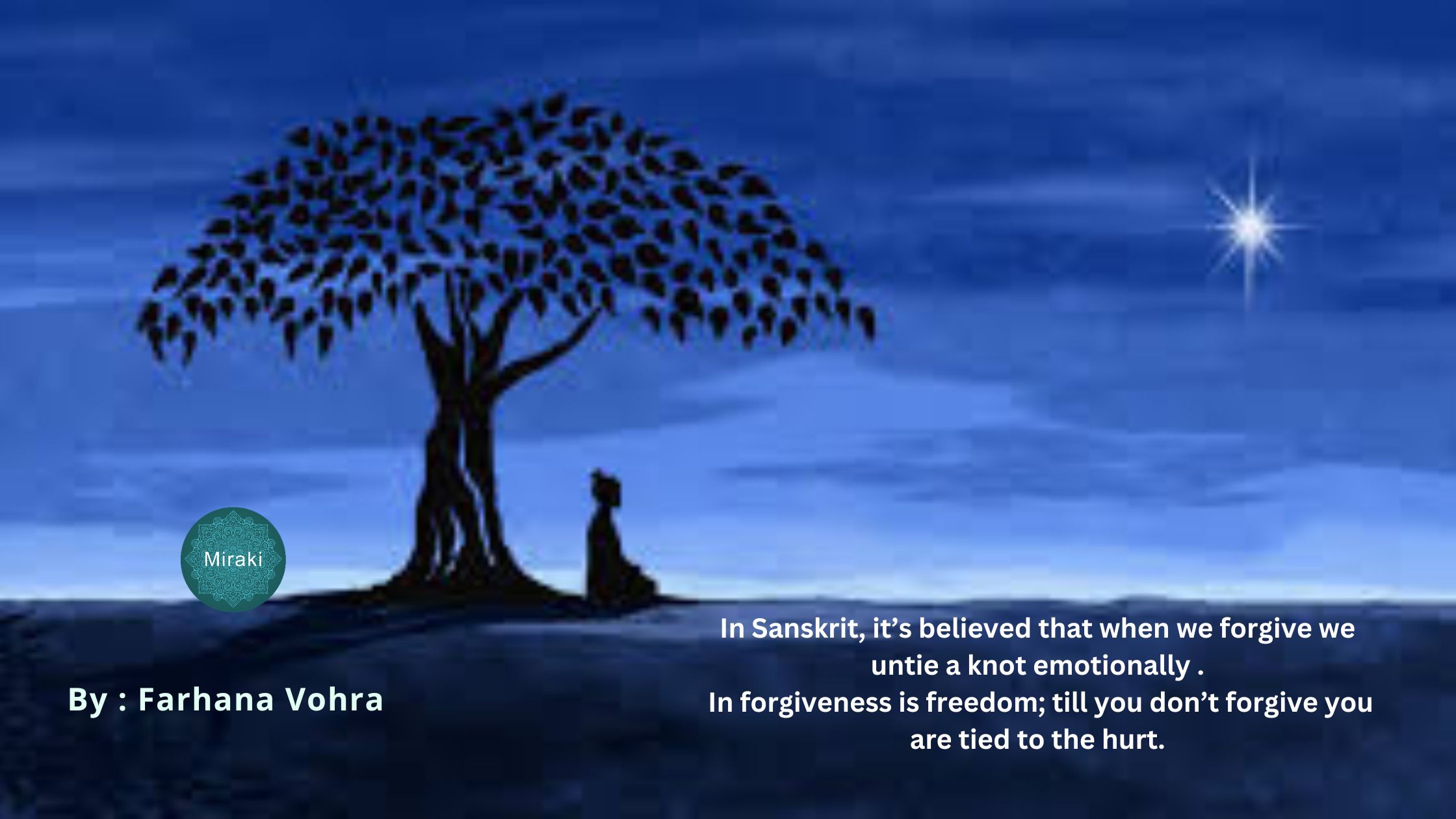Being human is forgiving
Being human is forgiving
In Sanskrit forgiveness is not an action we take for others, but for ourselves. when we forgive, we untie a knot emotionally and unclog our emotional system. In forgiveness is freedom; till you don’t forgive you are tied to the hurt. For the longest time I was slightly confused on the emotion of forgiveness; as I was sure I did not want the same situation to be repeated. As once it’s a mistake, twice a decision and then it becomes a habit.
I realise with the school of ultimate learning; Life, my inner work, trying to find the truth of life, I do forgive, and I have always forgiven easily in the face of an apology or a slight hint of regret for their behaviour. A sorry is only as good as a change in behaviour.
In time, the greatest gift to one self is gifting forgiveness.
Forgiveness is a profound and transformative concept in many religious and spiritual traditions, including Christianity and Hinduism. In both the Bible and Hindu scriptures, forgiveness is often emphasized as a crucial element for spiritual growth, peace, and ultimate liberation.
Christianity: The Bible and Forgiveness
In Christianity, the concept of forgiveness is central to the teachings of Jesus Christ. The Bible contains numerous passages that highlight the importance of forgiving others as a reflection of God’s mercy and grace.
Key Biblical Passages on Forgiveness:
The Lord’s Prayer: One of the most well-known prayers in Christianity includes a plea for forgiveness: “And forgive us our debts, as we also have forgiven our debtors” (Matthew 6:12). This indicates that seeking forgiveness from God is intertwined with our willingness to forgive others.
Hinduism: Forgiveness in Ancient Mantras and Scriptures
In Hinduism, forgiveness is considered a vital practice for achieving inner peace and spiritual liberation (moksha). The concept is embedded in various scriptures, teachings, and mantras.
The Ultimate Act of Letting Go
The final act of forgiveness might involve letting go of one’s deepest attachments, including, metaphorically or literally, the attachment to one’s child. This is not necessarily a call to abandonment but rather to the understanding that attachment can lead to suffering and hinder spiritual progress.
Abraham and Isaac: In the Bible, the story of Abraham’s willingness to sacrifice his son Isaac (Genesis 22) demonstrates the ultimate test of faith and letting go. Though God intervenes to stop the sacrifice, Abraham’s readiness symbolizes absolute trust in God.
Conclusion
Forgiveness, as portrayed in religious text is more than just a moral act; it is a path to spiritual freedom and peace. By forgiving others and oneself, individuals can release the burdens of anger, resentment, and negative emotions, leading to a more profound connection with the divine and ultimate liberation. This act of forgiveness, especially when it involves letting go of our most profound attachments, embodies the highest form of spiritual surrender and trust in the divine order.
In forgiveness is freedom; till you don’t forgive you are tied to the hurt.
Written by: Dr.(hon) Farhana Vohra






Leave a Reply